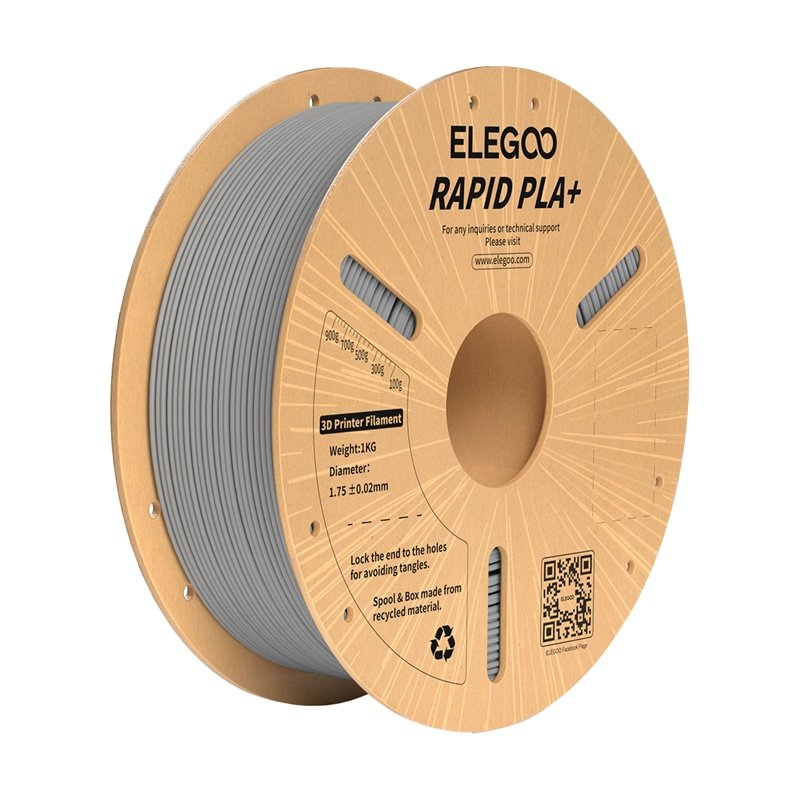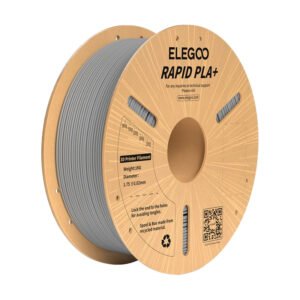Rapid PLA+ ELEGOO Filament (gray)
Rapid PLA+ (polylactide plus – a biodegradable material of plant origin, enriched with additives to increase durability) ELEGOO in gray variant is a filament designed for fast, technical prints. The subdued color masks minor imperfections and allows you to focus on the shape of the model. The material works well in utility projects, prototypes and structural elements where precision and repeatability are important. The spool holds 1 kg of plastic.

Performance at high speeds
The filament melts quickly and flows smoothly out of the nozzle, allowing you to print at speeds of up to 600 mm/s (with a properly adjusted printer). Rapid PLA+ has better flexibility and crack resistance compared to standard PLA, making prints less brittle and more durable. In addition, it conducts heat well, which promotes layer bonding.

Accuracy and convenience
A diameter of 1.75 mm and a dimensional tolerance of ± 0.02 mm ensure even feeding of the material and reduce the risk of nozzle clogging. The plastic is wound by machine and then checked by hand, reducing entanglements. The recycled cardboard spool makes segregation easy, and the whole thing is vacuum-packed with a moisture absorber – so the material is ready for printing as soon as it is opened.

General
| Manufacturer | ELEGOO |
|---|---|
| Model | 50.203.0116 |
| Color | Gray |
| Weight | 1 kg |
Recommended print settings
| Drying before printing | 55 ± 5°C |
|---|---|
| Ambient temperature and humidity | ≤ 50°C, ≤ 20% relative humidity (store with moisture absorber) |
| Nozzle temperature | 200 – 230°C |
| Table temperature (depending on printer and surface) | 35 – 65°C |
| Type of working surface | Textured PEI (polyetherimide – a durable material that holds prints well) or other compatible plates |
| Printing speed | Less than 600 mm/sec |
Physical properties
| Density | 1.23 g/cm³ |
|---|---|
| Melting point | 160°C |
| Deflection temperature under load | 57°C |
| Softening temperature (Vicat test) | 62°C |
Mechanical properties
| Tensile strength (XY – measured in the horizontal plane of the print, where the material is strongest) | 39 ± 2 MPa |
|---|---|
| Elongation at break (XY) | 8,5% ± 1,2% |
| Bending strength (XY) | 71 ± 6 MPa |
| Bending modulus (XY) | 2846 ± 175 MPa |
| Impact strength (XY) | 50.4 ± 2.8 kJ/m² |



